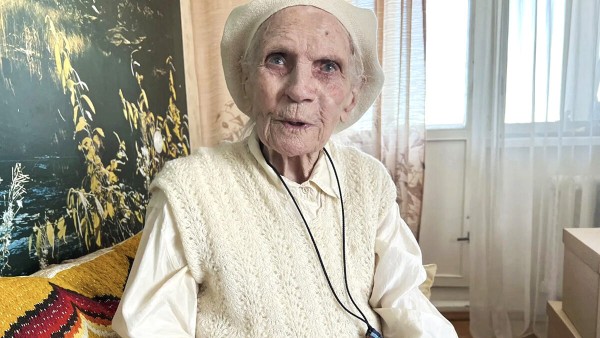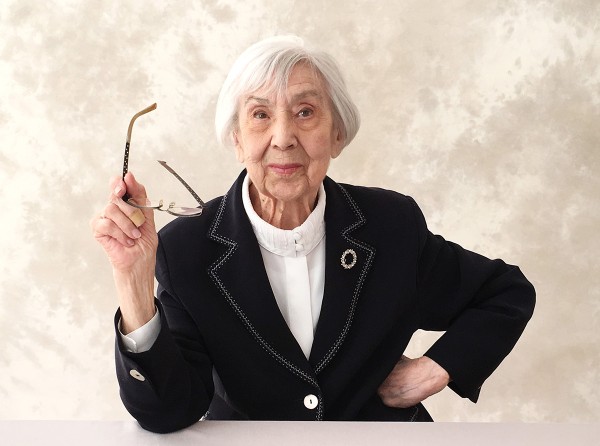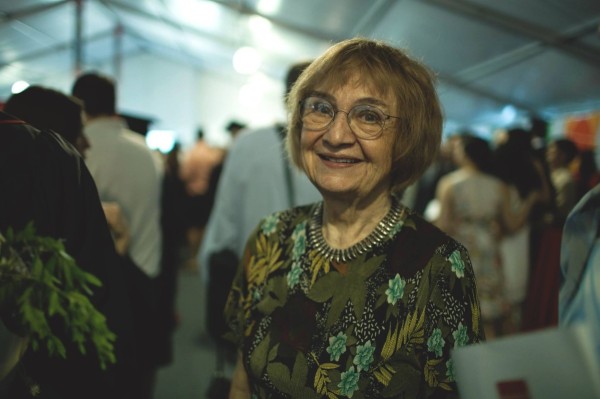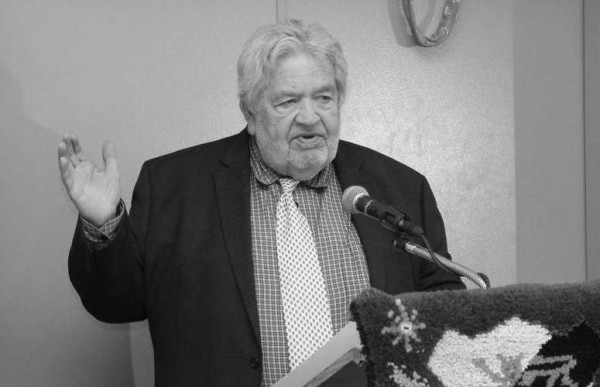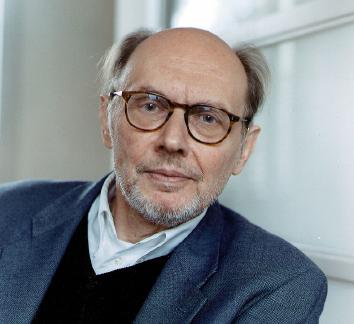
An acquaintance of mine and a great thinker named Per Axel Ahlmark decided at the age of 79 that he'd had enough of the daily life and strife that surrounds humankind. Thus on June 8 he up and slipped away from us in his home country of Sweden.
Per deserves to be remembered by Estonians, Latvians and Lithuanians and their friends because he unflaggingly kept the faith with us during the bleak years, when it seemed that the world had utterly forgotten the three Soviet-annexed Baltic states. Per Ahlmark was a member of the Swedish Liberal Party from early on in his life, and there's no doubt in my mind that he got to know more than one person of Baltic refugee extraction within the ranks of that party during his formative years. Chances are that's where at least some his awareness came from.
Per was a relatively unique figure among professional politicians, being a man of both principle and compassion. That all too rare creature then – a politican with a conscience.
I remember him best from his time with us aboard the Baltic Peace and Freedom Cruise (BPFC) of 1985, which was a tour de force as Baltic refugee political actions go, ranking up there with the time that young Estonian activists in America occupied the lobby of the New York Times, demanding that the NYT start dedicating more attention to the plight of the occupied Baltic states.
The BPFC was a PR success in two senses. First of all, this floating (shipboard) demonstration irritated Moscow so much that the USSR decided to direct one disinformation salvo after another against the BPFC, generating huge amounts of publicity for this political action, obviously for free. This resulted in approximately a hundred international journalists from top newspapers and TV organizations from around the world being in close proximity to some three hundred Baltic demonstrators of the younger generation for two or three days running. A lot of attention was generated by this in the Western media.
In his distinctive style, Per Ahlmark – by then already a figure of considerable standing in Europe - gave the Free World a politely worded tonguelashing aboard the MS Baltic Star. And the journalists had nowhere to go or escape to. "How can it be", asked Ahlmark, "that three parliamentary democracies in the form of the Republics of Estonian, Latvia and Lithuania get abducted by Hitler and Stalin in World War II and then simply go missing after the war? How come no one in Europe or elsewhere considers their abduction and disappearance a topic worth discussing?" Per Ahlmark noted that Finland may indeed have been Finlandized, and that while Hungary, Czechoslovakia, Romania and several others may have been under the hegemony of the Kremlin in the postwar years as Soviet satellites, they nonetheless continued to at least exist as national entities. "But how come we in the West have forgotten the Baltic States and act as though they'd never existed?". At least some of the "cornered" journalists aboard the Baltic Star wrote these things in their despatches as the ship made its way to the capital of Finland for a political demonstration on the streets of Helsinki, the likes of which Finland – seriously intimidated at that time by the USSR, and made very cautious – had never seen before.
Per Ahlmark was the Chairman of the Swedish Liberal Party from 1975-1978, a member of the Swedish Parliament, and later the Swedish Minister for Employment. He was also an aristocrat, not by birth but by natural disposition, and old school in this respect in the very best sense of the phrase. Interestingly, there were other aristocratic figures who actively supported the Baltic cause during the bleak decades, such as Otto von Habsburg, among others.
The term "liberal" has a rather different meaning on the opposite shores of the Atlantic ocean, particularly as it pertains to classical European liberalism of a few decades ago. If American conservatives and rightwingers use "liberal" as a pejorative term for people who insist on tolerance for platforms of the social wars that staunch conservatives abhor or consider repugnant, then in Europe liberalism has referred instead above all to freedom and the defense of freedom. Such phrases as free trade and free speech are straight from the liberal European playbook.
If Estonia's Reform Party - ostensibly a liberal party - has usualy only espoused capitalism in its most roughshod forms for the past two or three decades, then Ahlmark was of the liberal cast more in the Milton and Rose Friedman die. The point being that man does not live by bread alone, and that we go to our day jobs among other things not merely in order to pay the bills, but also to live our lives purposefully and in ethical fashions.
Your died in the wool classical liberal never has any truck with the enemies of freedom. This kind of liberal – Ahlmark included – suffers neither nazis nor communists well. Authoritarian regimes and ideologies are anathema for folks like Ahlmark was. There is an antiauthoritarian consistency to this logic. This is also one of the primary reasons one should be extremely cautious as concerns modern day Russia and China.
Ahlmark was the author of three books of articles, numerous commentaries, and a series of politically-oriented non-fiction books. The readers of several major Swedish newspapers were regular readers of his opinion columns.
We live in a world in which national socialism and fascism have tirelessly condemned since at least the beginning of World War II, and actually even longer. Leftist extremism and genocidal leftism on the other hand have gotten off ridiculously lightly, with little more than a slap on the hand and scant attention. Ahlmark was different in this respect. All political extremes and in particular the extremes that are the mortal enemies of freedom and democracy got his attention equally and consistently.
Per Ahlmark's most important poltical works deserve a mention in closing. In 1994, "The Left and Tyrrany", which deals with the issue of Marxist fellow travelers in Swedish society after WW II, caused a good bit of commotion in Sweden. This was followed by "The Open Wound " (or "The Open Sore"), which hammered against dictatorships from the perspective of a convinced democrat. And finally there was "It's the Democracy, Stupid" in 2004, followed by his memoirs.
Per Ahlmark was fallible like the rest of us. If I see any down sides to him, perhaps he was myopic when it came to recognizing the suffering of the Arabs in the Israel-Palestine conflict. There is of course a certain logic to this from his perspective, in that many of the Arab societies can hardly be considered the star pupils of the democratic ethos. Ahlmark was also too gung-ho for this author's taste as concerns the recent ill-begotten war in Iraq.
One way or another, it would be fitting for Estonians, Latvians and Lithuanians and their friends to drink a toast to Per Ahlmark or simply to meditate on him for a moment by way of thanks. Ahlmark belonged to the overly small circle of countries and people who stood loyally by the Baltic states during their years of Soviet oppression. Per Ahlmark continues to live on in the memory of many friends and his pupils, and his literary works in particular will continue to hold valuable lessons available for centuries to come.
Juri Estam







